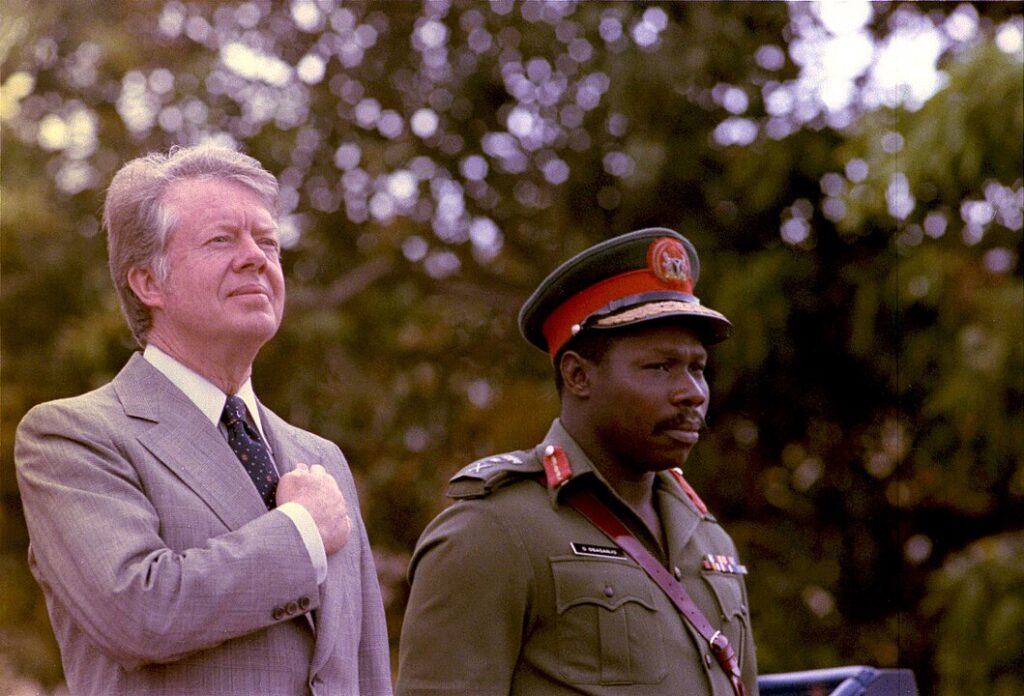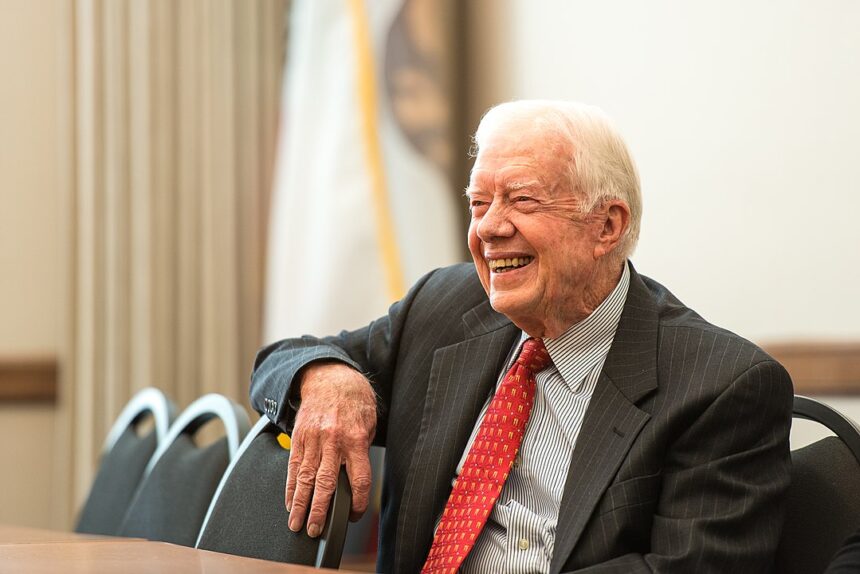Jimmy Carter, the 39th President of the United States, passed away on Dec. 29, 2024, at his home in Plains, Georgia. A Nobel Peace Prize laureate and humanitarian, Carter’s century-long life was marked by his dedication to human rights and public service, leaving a complex legacy on race and equality in America.
Born in 1924 in the segregated South, Carter grew up in a society deeply divided by race. His upbringing in Plains, Georgia, exposed him to both the harsh realities of systemic racism and the shared humanity of the Black families he lived among. This dual perspective shaped his approach to race relations as a political leader.

During his presidency from 1977 to 1981, Carter appointed an unprecedented number of Black Americans to federal positions, including Andrew Young as the first Black U.S. ambassador to the United Nations. He advocated for civil rights and desegregation, often citing his faith as a guiding principle for equality. His administration also funded historically Black colleges and championed voting rights, laying the groundwork for future progress.
However, Carter’s record on race was not without controversy. Critics pointed to his initial opposition to federally mandated school busing, a policy aimed at desegregating schools. While he later moderated his stance, some viewed his reluctance as a reflection of political pragmatism over principle.
After leaving office, Carter’s commitment to racial justice deepened. Through The Carter Center, he worked tirelessly to combat global inequities and promoted policies to dismantle systemic racism. In his later years, he spoke candidly about America’s ongoing struggle with racial injustice, urging reconciliation and equity.
President Joe Biden hailed Carter as “a man of principle who sought to heal America’s divisions,” while civil rights leader Rev. Jesse Jackson praised him as “a Southerner who stood against the tides of racial oppression.”
Jimmy Carter’s life, marked by both progress and imperfection, serves as a testament to the enduring struggle for racial equality and the power of individual conviction to foster change.










